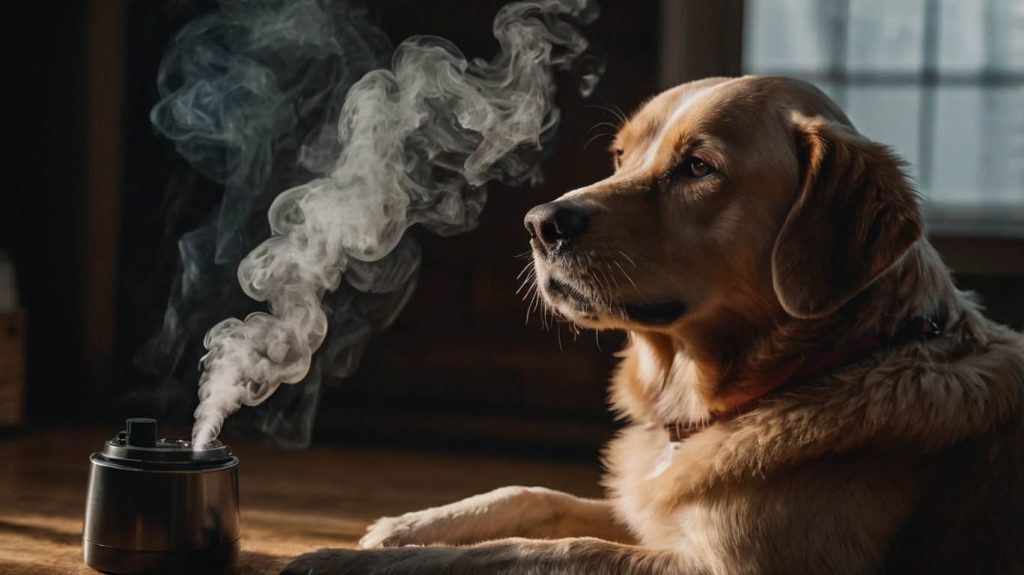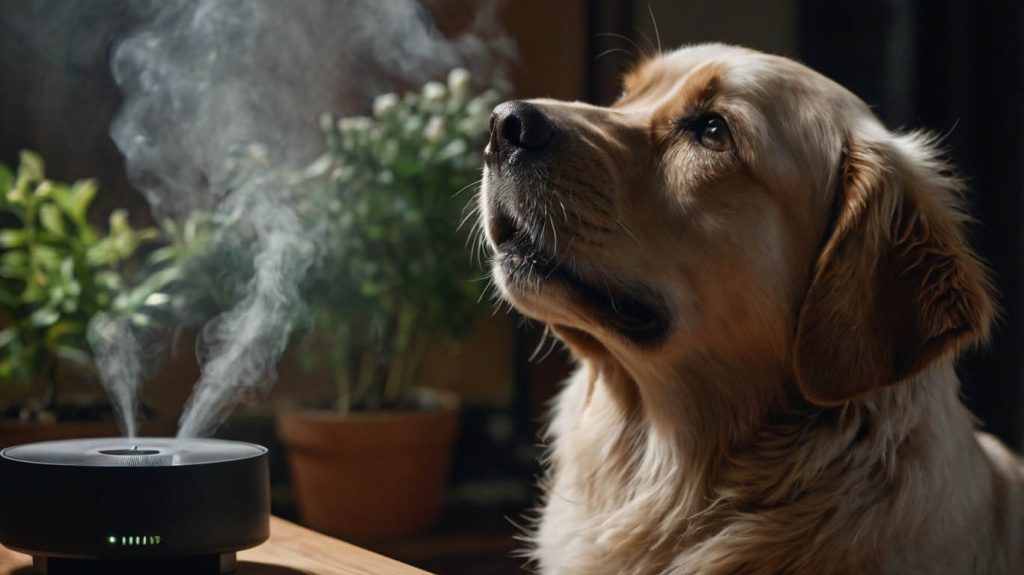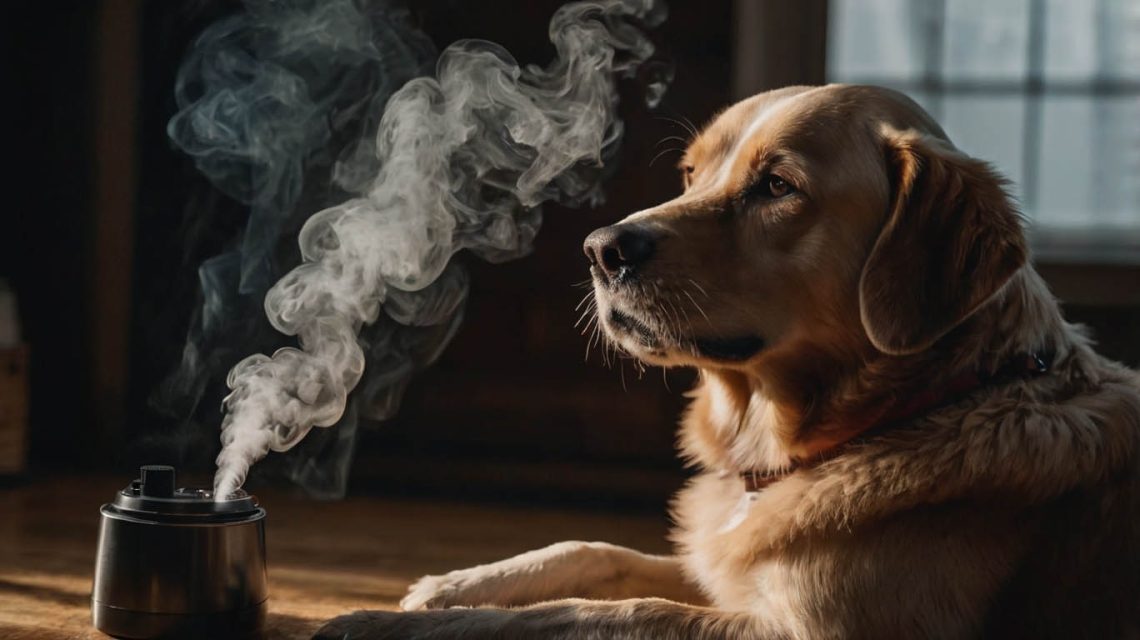Are Diffusers Harmful to Dogs? The Definitive Guide for Pet Owners
It was a chilly Tuesday evening, and Sarah decided to create a cozy atmosphere. She added a few drops of her favorite pine-scented essential oil to her diffuser, looking forward to the fresh, forest-like aroma. Her bulldog, Winston, was snoring softly on his bed nearby. An hour later, Sarah noticed Winston was coughing and wheezing, something he rarely did. He seemed lethargic and uninterested in his evening treat. A sudden, terrifying thought struck her: could her diffuser be the cause? She immediately found herself typing into her phone, “are diffusers harmful to dogs?”
Sarah’s story is a chillingly common one. As we embrace natural wellness and aromatherapy in our homes, many of us are unknowingly introducing significant hazards into our pets’ lives. The internet is a confusing labyrinth of anecdotal claims and conflicting advice, making it nearly impossible to find a straight answer.
Consequently, this guide is designed to be your authoritative, no-nonsense resource. We will break down exactly why diffusers can be dangerous, provide a clear list of toxic oils, detail the critical warning signs of poisoning, and offer a non-negotiable safety checklist. Therefore, you can get a definitive answer to the vital question: “are diffusers harmful to dogs?”
The Critical Answer: So, Are Diffusers Harmful to Dogs?
Let’s address the most important question immediately. Yes, diffusers can be extremely harmful to dogs. Their safety is not a given; it is entirely conditional and depends on three crucial factors:
- The specific essential oil being used.
- The concentration of the oil and duration of use.
- Your dog’s individual health, size, and breed.
A dog’s physiology is fundamentally different from ours. Their sense of smell is up to 100,000 times more powerful, and their livers lack certain enzymes to metabolize the compounds found in many essential oils. Ignoring these biological facts is how a well-intentioned attempt to freshen the air can become a life-threatening situation.

The Science: Understanding Why Diffusers Are Harmful to Dogs
When you use an ultrasonic diffuser, you are releasing a fine mist of water and microscopic essential oil droplets into your home’s air. These potent particles can harm your dog in two primary ways.
Inhalation Dangers and Respiratory Distress
The tiny oil droplets can easily be inhaled deep into your dog’s sensitive lungs and respiratory tract. This can cause significant inflammation and irritation. The scent that you find pleasant and relaxing can be an overwhelming, stressful, and physically painful assault on their powerful nose. This risk is especially high for:
- Brachycephalic (flat-faced) breeds: Pugs, Bulldogs, French Bulldogs, and Boxers already have compromised airways. For them, diffusers can be particularly harmful.
- Dogs with asthma, allergies, or bronchitis: The oil particles can trigger a severe coughing fit or a life-threatening asthma attack.
- Puppies and senior dogs: Their respiratory systems are more fragile and susceptible to irritation.
Toxicity from Ingestion and Skin Absorption
The oil droplets from the diffuser don’t just stay airborne. They settle on every surface, including your dog’s fur, bedding, paws, and even in their food and water bowls. When your dog grooms itself, licks its paws, or drinks its water, it ingests these oils. This is where the most severe harm occurs. Because a dog’s liver cannot properly metabolize the phenols and other compounds in many essential oils, the toxins build up in their system. This can lead to severe gastrointestinal upset, liver damage, organ failure, and serious neurological symptoms. This metabolic difference is a key reason why we must ask “are diffusers harmful to dogs?”

The “Do Not Use” List: Which Diffusers and Oils Are Harmful to Dogs?
This is the most important list for any dog owner. If you have these oils, they should be stored securely away from your pet and never used in a diffuser.
The Most Toxic Essential Oils for Dogs
- Tea Tree (Melaleuca): Extremely toxic, causing stumbling, weakness, and tremors.
- Pine Oil: Can cause vomiting and damage to the central nervous system. This was the oil that harmed Sarah’s dog, Winston.
- Wintergreen & Birch: Contain aspirin-like compounds (methyl salicylates) that are highly toxic and can cause organ failure.
- Cinnamon & Clove: Potent irritants that can damage the liver and airways.
- Pennyroyal: A known and severe liver toxin.
- Eucalyptus: Can cause excessive drooling and nervous system depression.
- Ylang Ylang, Anise, Thyme, Juniper: The list of harmful oils is long.
Passive Diffusers: A Hidden Danger
While ultrasonic diffusers pose an inhalation risk, passive diffusers like reed diffusers, plug-ins, or salt lamps with oils can be even more dangerous. They contain undiluted, concentrated oil that can be easily knocked over, licked, or spilled onto a dog’s skin, leading to immediate and severe poisoning.
Warning Signs That a Diffuser Is Harming Your Dog
Recognizing the signs of poisoning is crucial for a rapid response. If you use a diffuser and see any of these signs, it is a medical emergency.
- Drooling or excessive salivation
- Pawing at the face or mouth
- Vomiting or diarrhea
- Lethargy, weakness, or depression
- Stumbling, wobbliness, or difficulty walking (ataxia)
- Coughing, wheezing, or difficulty breathing
- Redness or irritation on the skin (chemical burns)
- Muscle tremors or seizures
Your Emergency Action Plan: What to Do If Your Diffuser Harms Your Dog
If you suspect your dog is showing signs of essential oil toxicity, follow these steps immediately.
- Remove Your Dog and Turn Off the Diffuser: Immediately turn off the diffuser and move your dog to an area with fresh air. Open all the windows.
- Call for Help: Contact your veterinarian or the Pet Poison Helpline (855-764-7661) or ASPCA Animal Poison Control Center (888-426-4435) right away. Have the essential oil bottle with you so you can provide the exact details.
- Do NOT Induce Vomiting: Never try to make your dog vomit unless a veterinary professional specifically instructs you to. This can cause the oil to be aspirated into the lungs.
- Seek Immediate Veterinary Care: Your dog will almost certainly need to be hospitalized for professional medical treatment, including IV fluids and monitoring, to support their body as it fights the toxin.
Case Study Resolved: Sarah and Winston’s Frightening Lesson
Let’s return to Sarah and Winston. In her panic, she did the right thing. She immediately turned off the diffuser, opened all the windows, and called her emergency vet. They told her to bring Winston in immediately. The vet confirmed that the pine oil had caused severe respiratory irritation and that Winston was showing early signs of neurological distress. He was hospitalized overnight for observation and supportive care. The vet was clear: Winston was lucky. Sarah’s quick action saved him from a much worse fate. She learned the hard way that the answer to “are diffusers harmful to dogs” is a resounding yes.
The Final Verdict: Prioritize Your Pet’s Health Over a Fragrant Home
While the idea of a naturally scented home is appealing, the potential for it to be harmful to our beloved dogs is significant and real. Their health and safety depend on breathing clean, unadulterated air. The risks associated with diffusing essential oils in a home with pets often far outweigh any potential benefits for the humans.
Your dog’s well-being should always be your number one priority. We strongly urge you to speak with your veterinarian before using any diffuser or essential oil product in your home. They can recommend truly pet-safe alternatives for freshening your home. Share this guide to help other loving dog owners avoid a potential tragedy.


